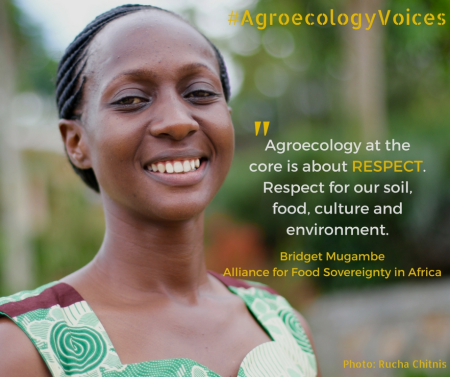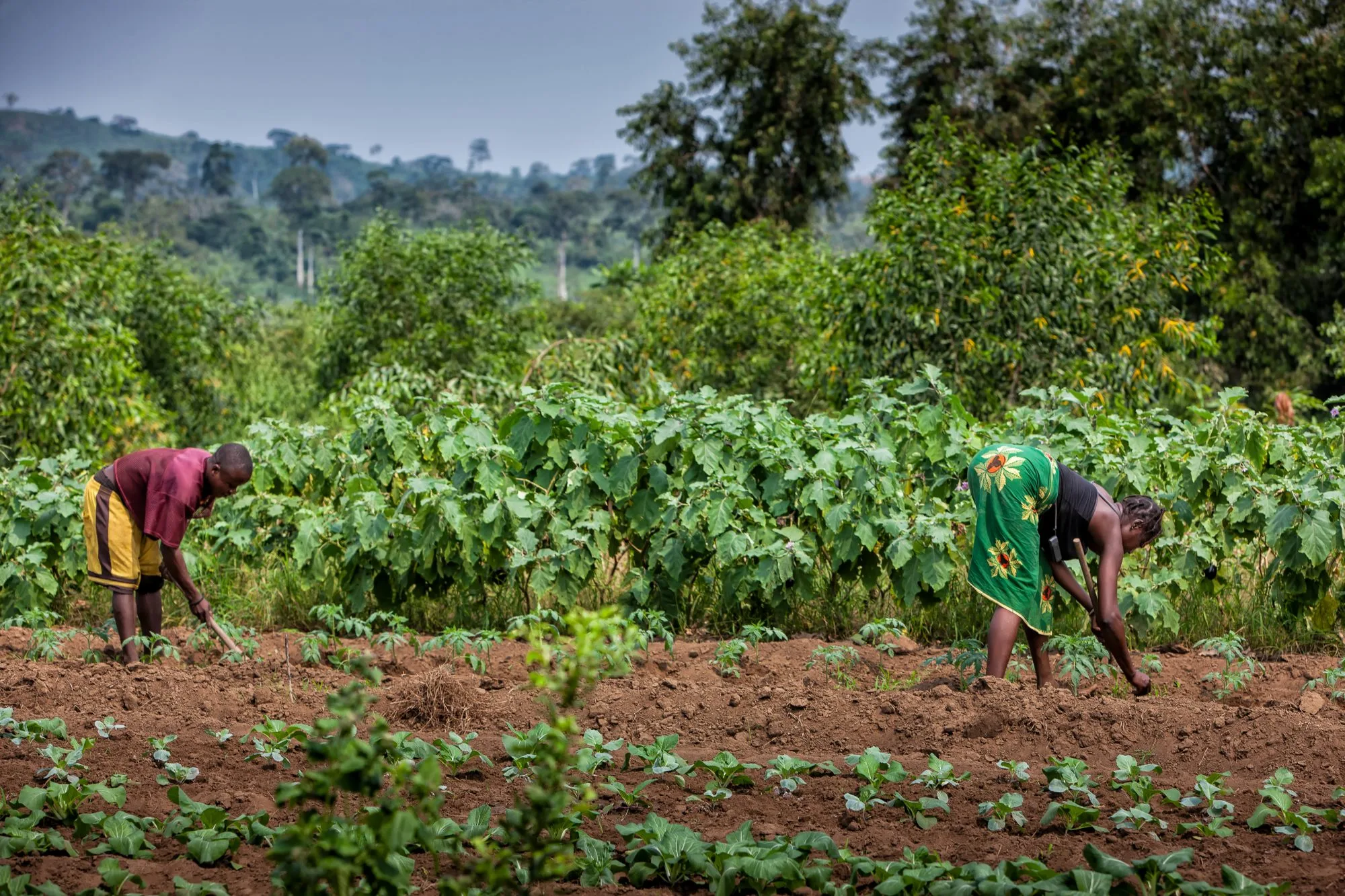
In the face of the global food crisis, farmers have answers.
There is a growing movement internationally – agroecology – that is focused on building sustainable food systems from the bottom up, so that small-scale farmers (many of them women) have control over how land and water are managed and which crops are grown to meet the needs of their families and communities, both now and into the future.

Agroecology is a farmer-driven system of sustainable agriculture that unites traditional Indigenous knowledge and science-based innovation with an ecosystem’s natural processes. Agroecology focuses on growing a diverse range of crops suitable for the climate and land in which they are grown, as opposed to industrial approaches that mass produce one crop for export. Without a dependence on fossil fuel-based pesticides, fertilizer chemicals, and other industrial techniques that release greenhouse gasses, agroecology fights climate change while allowing farmers to feed their communities and protect their livelihoods. This keeps food systems localized, building resilience as communities become more self-sufficient and capable of withstanding global shocks.1
Agroecology is a people-centred approach — as opposed to industrial and corporate-driven — that aims to build sustainable, resilient, diverse, healthy, productive, and culturally appropriate local food systems for both present and future generations.
How Canada chooses to allocate its international assistance to address global hunger can help work toward this outcome of global food sustainability.
Dig Deeper…
- What is Agroecology? – A clear and thorough introduction from the Canadian non-profit SeedChange.
- Agroecology is the African-led solution we need from COP27 This article, from African Arguments, was published during COP 27, the 2022 UN climate change conference, which took place last November. It provides a clear description of agroecology as a locally-led, sustainable model of agriculture, and a solution to the climate crisis.
- African Women Speak Out for Agroecology — This report from the African Women’s Collaborative for Healthy Food Systems grew out of a storytelling project in five African countries and celebrates the contribution of peasant and indigenous women to healthy food systems in Africa.
- Breaking Away from Industrial Food and Farming Systems — This report from the International Panel of Experts on Sustainable Food Systems describes seven case studies in agroecological transition. It is a lengthy document which may be more than you wish to read, so we would like to highlight for you, in particular, Section 3.3 which follows a project in Tanzania: Rethinking food, farming, forestry, and resource management to build a climate-resilient ‘Ecovillage’. This project aimed to address the challenges of recurrent drought, food insecurity, and vulnerability to climate change in the village of Chololo, Tanzania. You’ll find this inspiring case study on pages 37 – 46 of the report.
- The Agroecology Fund is a multi-donor fund that aims to support and strengthen agroecological movements around the globe. Watch their 7-minute introductory video Agroecology: Grassroots Solutions to Global Crises to get a sense of the momentum of the global agroecology movement. (Tip: There are subtitles available on this video. If they do not automatically appear, move your cursor to the bottom of the video screen to trigger the menu and click the CC button for English subtitles.)



